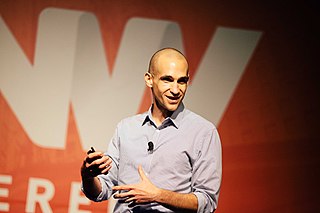A Quote by Ari Melber
Here is one iron law of the Internet: a social network's emphasis on monetizing its product is directly proportional to its users' loss of privacy.
Related Quotes
The growth of the Internet will slow drastically, as the flaw in 'Metcalfe's law'–which states that the number of potential connections in a network is proportional to the square of the number of participants–becomes apparent: most people have nothing to say to each other! By 2005 or so, it will become clear that the Internet's impact on the economy has been no greater than the fax machine's.
Like almost every major infrastructure, the Internet can be abused and its users harmed. We must, however, take great care that the cure for these ills does not do more harm than good. The benefits of the open and accessible Internet are nearly incalculable, and their loss would wreak significant social and economic damage.

































